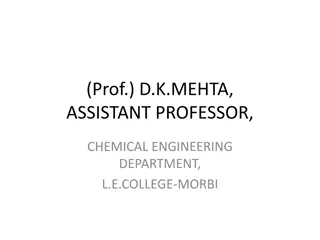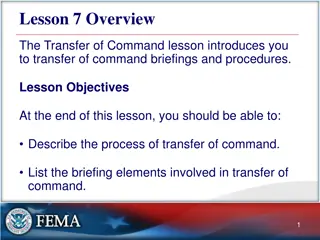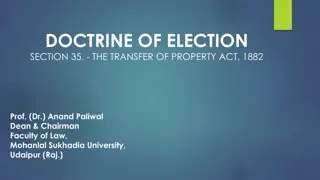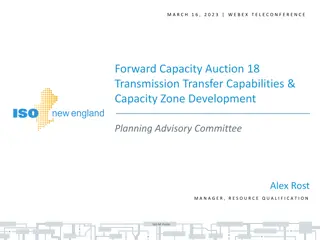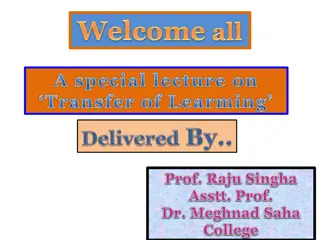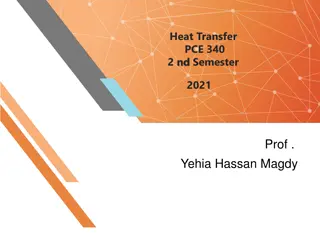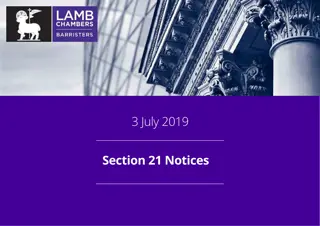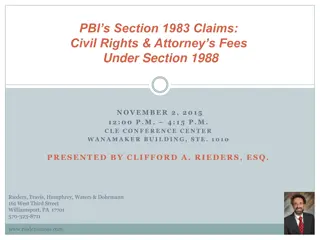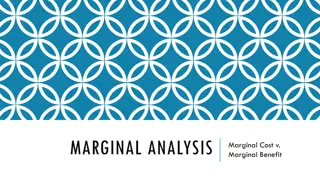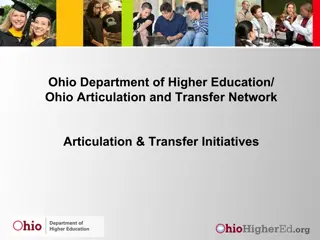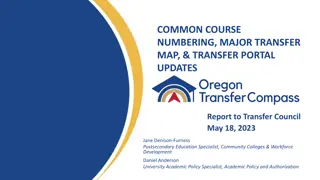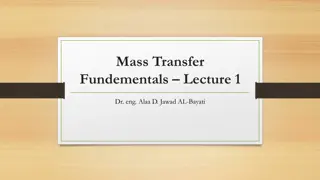Understanding Section 13: Transfer for Benefit of Unborn Person
Section 13 of the Transfer of Property Act deals with transfers created for the benefit of a person not yet born at the time of transfer. It lays down conditions for such transfers to be valid, requiring the interest to extend to the whole remainder interest of the transferor. This section serves as an exception to the general scope of transfer laws and emphasizes the importance of conveying the absolute interest to the unborn person. The mechanism involves creating a prior estate as a condition precedent, with the hope that the unborn person will come into existence within a specific timeframe.
Download Presentation

Please find below an Image/Link to download the presentation.
The content on the website is provided AS IS for your information and personal use only. It may not be sold, licensed, or shared on other websites without obtaining consent from the author. Download presentation by click this link. If you encounter any issues during the download, it is possible that the publisher has removed the file from their server.
E N D
Presentation Transcript
Transfer for benefit of unborn personSection 13 Prof. (Dr.) Anand Paliwal Dean & Chairman Faculty of Law, Mohanlal Sukhadia University, Udaipur (Raj.)
Section 13 Transfer for benefit of unborn person Where, on a transfer of property, an interest therein is created for the benefit of a person not in existence at the date of the transfer, subject to a prior interest created by the same transfer, the interest created for the benefit of such person shall not take effect, unless it extends to the whole of the remaining interest of the transferor in the property.
Illustration A transfers property of which he is the owner to B in trust for A and his intended wife successively for their lives, and after the death of the survivor, for the eldest son of the intended marriage, for life, and after his death, for A s second son. The interest so created for the benefit of the eldest son does not take effect, because it does not extend to the whole of A s remaining interest in the property.
Section 13 is an exception to general scope and extent of Transfer of Property Act which deals with transfer inter vivos only. Transfer by a born to unborn is special law laid down in Section 13. Section 13 applies only when transferee is not in existence at the date of transfer.
Whole remainder interest (Absolute interest) of the transferor in the property must be conveyed to unborn person.
Prior estate is condition precedent for such transfers. No direct transfer to unborn person is allowed. The mechanism of prior interest being reserved for some one in existence with a hope that unborn person will come in existence on or before the expiry of the prior estate or last of these if many in that property.
Absolute Interest Creation of Prior No A B Further Transfer Un born Person Transferor Interest
Sections 13 to 18 place restrictions on the power of tying up property by a transaction inter vivos similar to those imposed by Sections 113 to 117 of Indian Succession Act, 1925 in case of Wills. Section 113 of Indian Succession Act deals with Will (wasiyat) whereas Section 13 of T.P. Act deals with private transfers other than a Will. Provision are identical in both Acts. The illustrations given in Section 113 of Indian Succession Act are useful to understand Section 13 of T.P. Act as well.
Section 137 T.P. Act corresponds to Section 113, Indian Succession Act, 1925 which runs as follows : "113. Bequest to person not in existence at testator's death subject to prior bequest.-Where a bequest is made to a person not in existence at the time of the testator's death, subject to a prior bequest contained in the will, the later bequest shall be void, unless it comprises the whole of the remaining interest of the testator in the thing bequeathed.
A person who is not in existence can neither be a transferee of property, be a beneficiary under a trust until he comes into existence. There can, therefore, be no immediate transfer for property or trust in favour of a person not in existence.
A person who is not in existence can neither be a transferee of property, be a beneficiary under a trust until he comes into existence. There can, therefore, be no immediate transfer for property or trust in favour of a person not in existence. The principle is recognized by this Act as well as by the Indian Trusts Act.
A person not in existence may be Person in womb or person not even in womb. A person in womb can be given property under Section 13. The mechanism given in Section 13 is; prior estate and absolute estate. If so, transfer to unborn person can be made indirectly through this mechanism.
Girija Dutt v. Data Din AIR 1934 Oudh 35. 147 I.C. 991 , is a leading case on Section 13. In this case, A made a gift of her property to B (daughter of her nephew) and after her, to her male descendants (sons) if any, absolutely. In case, there was no male issue to B, then to the B's daughters without power of alienation. If there are no issues to B (male or female) then to B.
B dies issueless. The question was whether gift to unborn daughters was valid? Whether gift to B (her nephew) was valid? The court held; gift to unborn daughters failed under Section 13; (i) No prior estate and (ii) no absolute transfer; gift to failed under Section 16.
Rule in Whitby v. Mitchell, known also as Rule against Double Possibilities (Now abolished in English Law ) old Rule against perpetuities Prior to 1926, contingent remainders whether legal or equitable, were subject to this rule. This rule may be stated as follows :
"If an interest in the realty is given to an unborn person, any remainder to his issue is void, together with all subsequent limitations. Thus, if land was limited to "A (a bachelor) for life, remainder to his son for life, remainder to A's son's son in fee simple, the remainder to the grandson would be void under this rule."
This rule was a common law rule applicable to legal estates in land. The rule against perpetuities was a subsequent development, and as it overlapped the rule against double possibilities that is : Whitby v. Mitchell rule, the latter rule (Whitby's rule) has now been abolished by Section 161 of the Law of Property Act, 1925 and transfer to unborn Persons are now governed by rule against perpetuity even in English law.
Raja Bajrang Bahadur Singh v. Thakurain Bakhtaraj Kuer (AIR 1952 SC 7). "It is quite true that no interest could be created in favour of an unborn person but when the gift is made to a class or a series of persons, some of whom are in existence and some are not, it does not fail in its entirety, it is valid with regard to the persons, who are in existence at the time of the testator's death and is invalid as to the rest.
Hindu Law - According to Hindu Law, a gift or a bequest in favour of an unborn person is void. This rule has been modified by statute and now, the omission of the word 'Hindu' in Section 2 of the Act makes this section and other sections in the second chapter directly applicable to Hindus.
Muhammedan law A gift to a person not in existence on the date of transfer is void except in the case of waqf.






